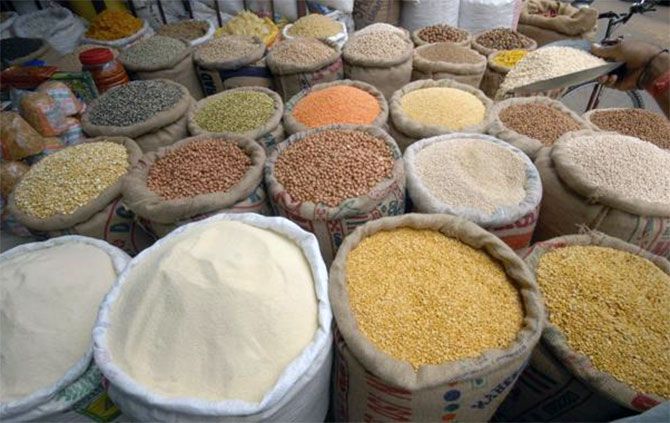Back-to-back droughts in India, the world's largest importer of edible oils and pulses, has boosted prices and made pulses attractive to Canadian farmers.

Canadian farmers intend to plant more peas and lentils than ever before, as strong Indian demand stokes interest in pulse crops, according to a Reuters industry poll ahead of a government report.
Pulses amount for a fraction of Canada's planted area compared to wheat and canola, the country's largest crops. But this year they have been the talk of the western Prairies as farmers made seeding plans.
Back-to-back droughts in India, the world's largest importer of edible oils and pulses, has boosted prices and made pulses attractive to Canadian farmers. Pulses are an important protein source in the Indian diet.
"Most years everyone wants to know the canola (area). This year it's, 'what are lentils doing?'" said Chuck Penner, analyst at LeftField Commodity Research. Pulse interest "is pushing aside some other crops or limiting the expansion of other crops."
Farmers intend to plant 5 million acres of lentils and 4.6 million acres of peas, shattering records, according to average estimates in an overall crop survey of 15 traders and analysts.
Pulses are expected to shift some land away from spring wheat plantings, as the all-wheat area may fall about 4 percent to 23.2 million acres. Canola plantings are expected to total 20.4 million acres, up 1.5 percent from last year.
Statistics Canada will estimate farmers' planting intentions on Thursday. The agency surveyed farmers from March 16 to 31.
With smaller forecast plantings of spring wheat in both Canada and the United States, supplies could tighten modestly over the next year depending on how crops fare, said Wayne Palmer, market analyst at AgriTrend.
International Grains Council forecasts that world wheat production will fall to 713 million tonnes in 2016/17 from 734 million in 2015/16.
Most planting in Western Canada, the country's wheat and canola belt, happens in May.
Spring floods, which can slow or prevent farmers from seeding crops, are unlikely this year on the Canadian Prairies, but some regions are parched.
Soils in central Alberta and that province's Peace River region are dry, and may slow early development of canola and barley crops, Penner said.
Canada is the world's second largest wheat exporter and the biggest shipper of canola, a cousin of rapeseed used largely to produce vegetable oil.











